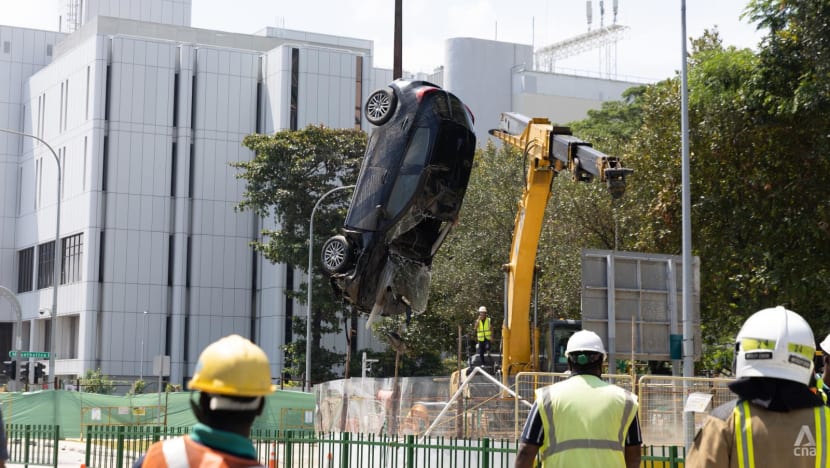analysis Singapore
CNA Explains: Is a sinkhole an 'act of God' – and what does that mean for compensation claims?
An "act of God", or force majeure, is a clause in some insurance policies that could exclude a person from insurance payouts in some cases. Does that apply to sinkholes?




This audio is generated by an AI tool.
The rare incident of a sinkhole appearing in Singapore garnered much interest online, with commentators speculating whether the woman is entitled to insurance payouts if the opening of the sinkhole was seen to be an "act of God".
SINGAPORE: As the authorities begin what could be a lengthy probe into the cause of the Tanjong Katong sinkhole that swallowed a car and its female driver on Jul 26, some have raised questions about whether she has any recourse for financial compensation.
Nearby construction workers from a PUB site rescued her quickly and she was taken to hospital while she was conscious. Her blue Mazda hatchback remained in the flooded hole for a day before being lifted out by crane on Jul 27.
The Building and Construction Authority (BCA) and the Ministry of Sustainability and the Environment are conducting separate investigations into the incident. The process is expected to take several months due its complexity.
The rare incident of a sinkhole appearing in Singapore garnered much interest online, with commentators speculating whether the woman is entitled to insurance payouts if the opening of the sinkhole was seen to be an "act of God".
Also known as a "force majeure" clause, an incident is deemed to be an act of God if it was unavoidable and outside of human control. This has implications on insurance coverage.
But experts said if investigations pinpoint fault to certain parties, one could be entitled to compensation via the legal route in addition to insurance.

















